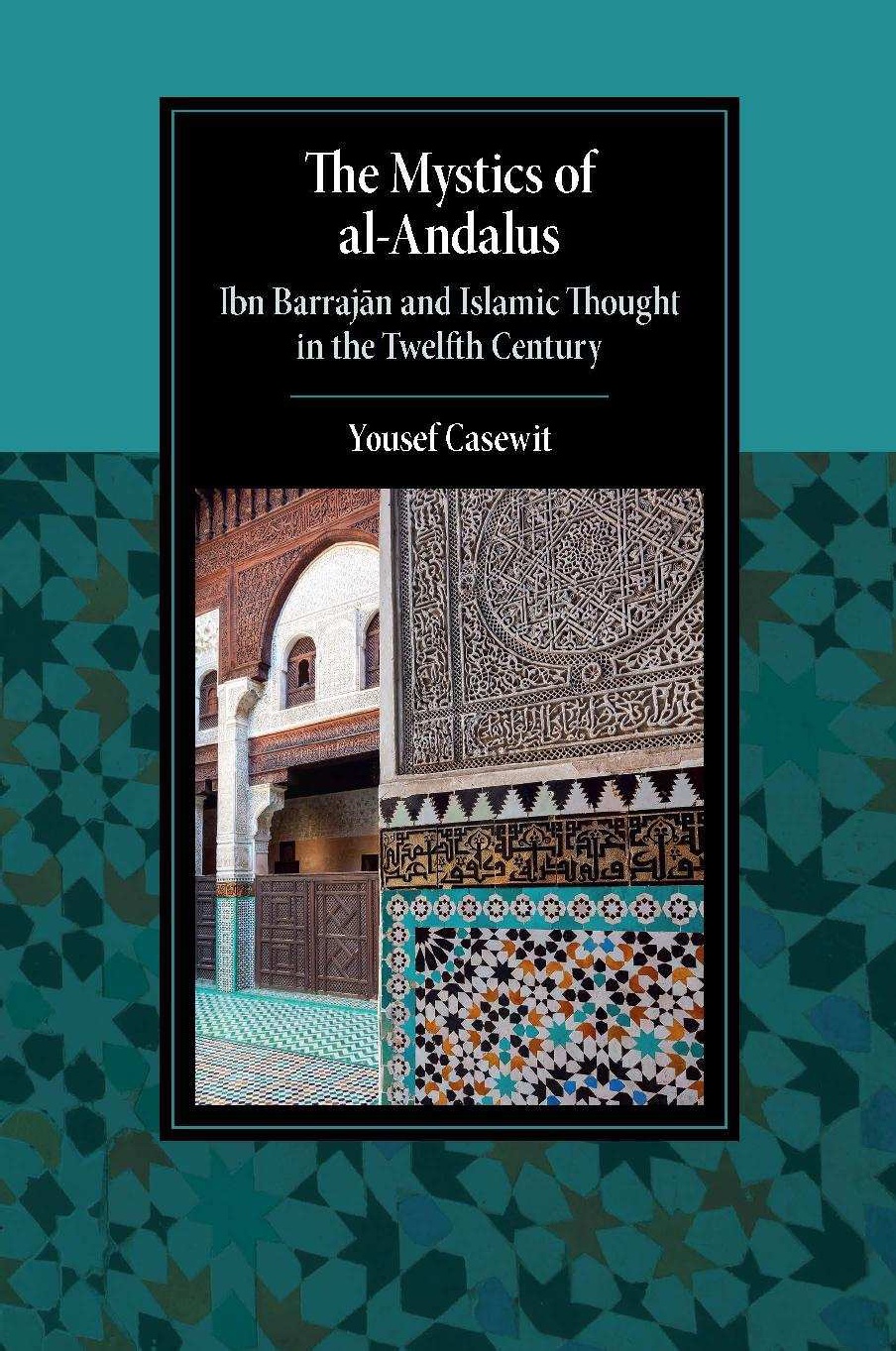
03 May The Mystics of al-Andalus
En el mes de abril vio la luz la nueva publicación del profesor de la Universidad de Chicago Yousef Casewit, «The Mystics of al-Andalus. Ibn Barrajān and Islamic Thought in the Twelfth Century», Cambridge University Press, serie Cambridge Studies in Islamic Civilization, 2017.
Ficha bibliográfica
- Autor: Yousef Casewit
- Título: The Mystics of al-Andalus. Ibn Barrajān and Islamic Thought in the Twelfth Century
- Series: Cambridge Studies in Islamic Civilization
- Número de páginas: 384 pages
- Editorial: Cambridge University Press
- Idioma: Inglés
- ISBN-10: 1107184673
- ISBN-13: 978-1107184671
- Precio: £ 95.00
Resumen
The twelfth century CE was a watershed moment for mysticism in the Muslim West. In al-Andalus, the pioneers of this mystical tradition, the Mu’tabirun or ‘Contemplators’, championed a synthesis between Muslim scriptural sources and Neoplatonic cosmology. Ibn Barrajān of Seville was most responsible for shaping this new intellectual approach, and is the focus of Yousef Casewit’s book. Ibn Barrajān’s extensive commentaries on the divine names and the Qur’an stress the significance of God’s signs in nature, the Arabic bible as a means of interpreting the Qur’an, and the mystical crossing from the visible to the unseen. With an examination of the understudied writings of both Ibn Barrajān and his contemporaries, Ibn al-‘Arif and Ibn Qasi, as well as the wider socio-political and scholarly context in al-Andalus, this book will appeal to researchers of the medieval Islamic world and the history of mysticism and Sufism in the Muslim West.
• Offers a broad introduction and reappraisal of Andalusî intellectual history from the ninth to the twelfth century • Recasts the formative Andalusî mystics as a distinct tradition from Sufism, self-identifying as Muʿtabirûn, or ‘Contemplators’ • Introduces the central Qurʾânic hermeneutics and cosmological teachings of a major Islamic thinker for the first time, positioning Ibn Barrajân at the forefront of twelfth century Andalusî mystical thought • Contributes to the renewed debates in Arabic biblical studies by highlighting the crucial, but neglected role, of Ibn Barrajân in the Islamic exegetical tradition
1. The beginnings of a mystical discourse in al-Andalus: Ibn Masarra, Mālikism, and the politics of an epistemological debate
2. The rise of the Andalusī Muʿtabirūn: the influence of Ghazālī, markers of the Muʿtabirūn tradition, and the onset of institutional Sufism
3. The life of a contemplative: Ibn Barrajān’s educational formation, spiritual practices, political views, and decease
4. The works of Ibn Barrajān: chronological sequence, manuscript tradition, and central themes
5. The divine descent: bridging the chasm between God and creation
6. The hermeneutics of certainty: harmony, hierarchy, and hegemony of the Qurʾān
7. A Muslim scholar of the Bible: biblical proof-texts for Qurʾānic teachings in the exegetical works of Ibn Barrajān
8. The human ascent: Iʿtibār, cycles of time, and future predictions.
Accede aquí a la introducción.



Ισλαμική Ανδαλουσία: το Μυστήριο της Πτώσης ενός από τους Μεγαλύτερους Πολιτισμούς Όλων των Εποχών – Οι Ρωμιοί της Ανατολής – Greeks of the
Posted at 21:58h, 29 noviembre[…] http://arabistas.com/mystics-al-andalus/ […]